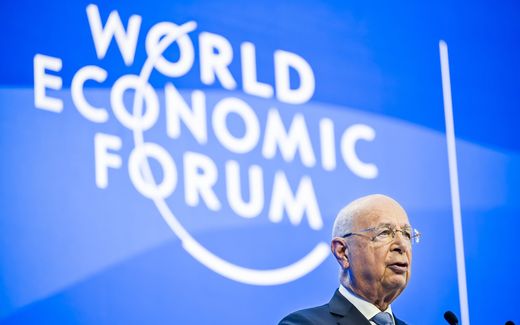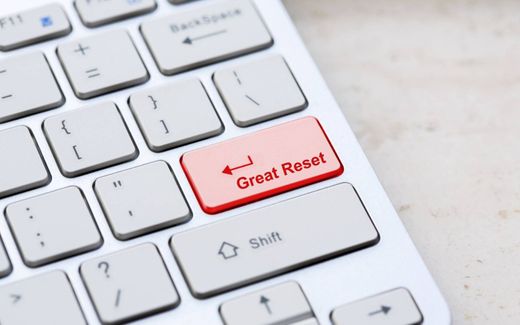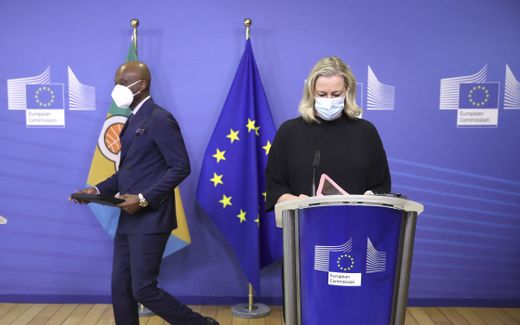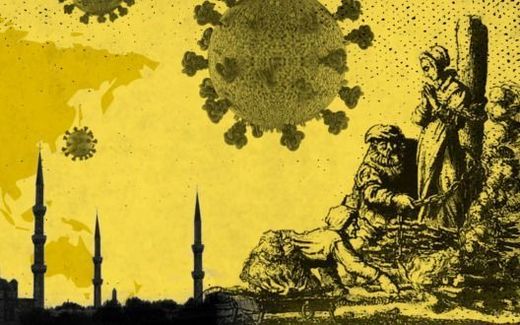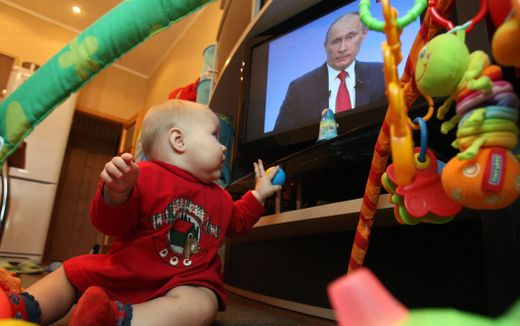Elizabeth Visser: Standing up for the voiceless at WEF in Davos
20-01-2023
Central Europe
Janita van Hoeven, RD
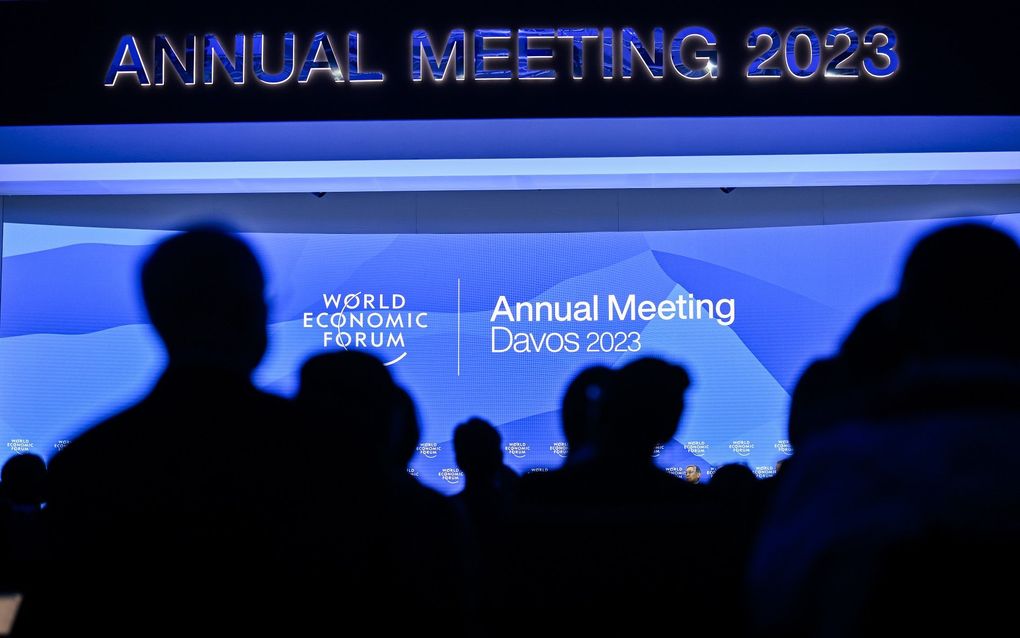
53rd annual meeting of World Economic Forum (WEF) in Davos. The meeting brought together entrepreneurs, scientists, corporate and political leaders in Davos under the topic 'Cooperation in a Fragmented World' from 16 to 20 January. Photo EPA, Gian Ehrenzeller
Central Europe
The Dutch Elizabeth Visser attended the World Economic Forum (WEF) annual meeting in Davos, Switzerland, this week. "I have not seen any evidence so far that Davos would be one big conspiracy," she said.
"My daughter is speaking in a side session of the WEF tonight," Marten Visser, missionary director of GlobalRize Netherlands, tweeted on Monday morning. "Unfortunately, I won't be there then." Visser appeared to be travelling to Davos for one day; his daughter Elizabeth was there for the whole week. She is happy to answer, by e-mail, some questions from the Reformatorisch Dagblad about it.
What is your reason for attending the WEF meeting in Davos?
"I am here with International Bridges to Justice (IBJ), an NGO working in more than 50 countries around the world to address broken justice systems. Think for a moment - who are the most neglected and invisible people in the world? It's not just the poor. It's not just ethnic minorities. It is the poor and ethnic minorities who are arrested and tortured by the police (detainees, who are often too poor to afford the protection of a lawyer, are at high risk of being tortured by the police for a confession. That is the cheapest way to get a confession) and be thrown in jail. Globally, there are millions behind bars who have not had any form of justice or trial. Sometimes they wait years for a trial without knowing what crime they are accused of.

Since its inception in 2000, IBJ has worked to give voice to the voiceless, protect the world's legal rights of the world's poorest and most marginalised people, and work for a permanent end to torture worldwide. IBJ lawyers have provided free legal assistance to more than 480,000 prisoners in 50 countries.
IBJ has been at Davos for years to give a voice to the voiceless and to make connections with philanthropists who could support IBJ's work. This is generally an important goal of NGO leaders at the WEF.
This is my first time at the WEF; I am mainly here to help Karen Tse, our founder and CEO, with anything she needs. On Thursday, we had our own IBJ event, which included a speech by the mayor of Davos and Hilde Schwab, the wife of Klaus Schwab (founder of the WEF). It was a successful event; we even had to turn people away at the door."
You spoke at an ecumenical meeting of the WEF on Monday night. What kind of meeting was that? Whose initiative is that, and for what purpose? What was it like?
"For more than 20 years during the WEF, the ecumenical action "Silence and Prayer" has taken place in the church of St Johann. Monday evening's opening service followed the motto of this year's WEF: "Cooperation in a fragmented world / Working together in a fragmented or torn world". In a table discussion with international guests Lina Shekhmous, myself and John Cronin, Pastor Hannah Thullen explored the possibilities and limits of constructive cooperation. The focus was on the guests' perspectives on successful cooperation, and the role religion could play in it.
I talked about the work of IBJ and how I experienced that collaboration is essential to improve justice systems. Collaboration is central to IBJ's model: we hold regular roundtable discussions with all relevant players in the legal system to build rapport and foster cooperation. We bring together judges, police, lawyers and prosecutors to work together constructively, not from a place of judgement, but with hope and faith in improvement, that we can change things together.
I also talked about my faith and how Christianity can contribute to successful cooperation. It is essential to give people a second chance, to forgive rather than immediately write off when something does not go very well in collaboration. I also believe that everyone has intrinsic value and a soul and is worth listening to and that tolerance, forgiveness and giving people a second chance are important to talk to each other and bridge divisions (including in legal systems).
After the meeting, there was room for questions over drinks. Several people asked me how old I was, as they did not expect to see someone on the panel who was so young.
How did you experience the past week? What struck you most?
"It was a fairly bizarre experience. It is a crazy idea that so many rich and powerful people are together in one little town in the Swiss Alps. All the bars and restaurants, shops and hotels on the main street have been taken over by companies like Microsoft, Meta and Cisco, and countries like India, Saudi Arabia and the United Arab Emirates. Looking in through the shop windows, you can see television appearances being recorded here and there. On the streets, journalists stand reporting. Shiny black limousines drive by constantly.
The caste-like badge system was also striking; if you were one of the official invitees to the WEF, you got a white badge and could enter anywhere (including the convention centre); with a blue hotel badge, you could enter most side events. Also striking is how everything was free - the food, hot chocolate, coffee, and even gadgets, bags and scarves."
After 50 years, the WEF still has a foggy image and regularly fuels conspiracy theories and speculation about a new world order. What do you think of that?
"There is a lot of criticism of the WEF, from left and right, from climate activists and conspiracy theorists. So far, I haven't seen any evidence that Davos would be one big conspiracy."
What do you think is the impact of this summit?
"The summit's impact is mainly the personal relationships made among the world's elite. New projects and ideas are born when such people meet. People often talk cynically about the WEF, but the people who meet here are intelligent, ambitious people who have often achieved a lot and have a lot to offer. Through the informal meetings during the WEF, partnerships are forged that can have a lot of impacts."
In a podcast, Dutch economist and journalist Mathijs Bouman called the WEF congress "an extraordinarily useless, expensive and environmentally destructive meeting where everyone is a bit hypocritical." What is your reaction to this?
"It is quite striking how much climate is talked about - while a constant stream of black limousines drives through the Promenade. There are big signs like: "Change now so that our climate doesn't". There is a lot of talk about sustainability. But meanwhile, the forum itself could be organised in a greener way.
Yet there are also many business leaders and CEOs here who don't necessarily take a statement on the environment, and so to my mind are not hypocrites - they are just at the WEF for business, and not to solve world problems."
This article was translated by CNE.news and previously published by Dutch daily Reformatorisch Dagblad on January 20th, 2023.
Related Articles

